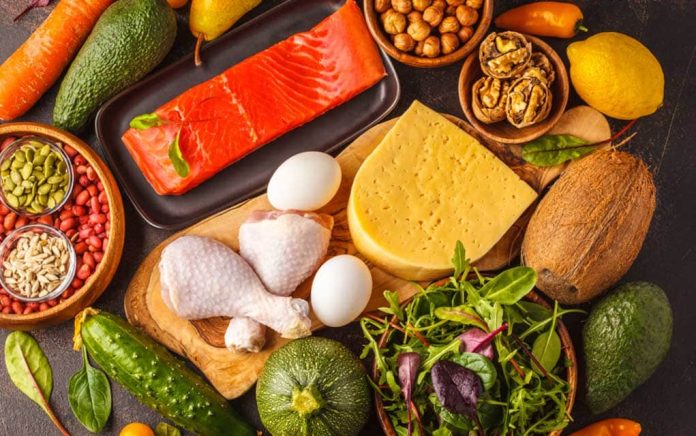
(HealthyResearch.com) – If your low-carb diet has stopped working, take heart. It’s normal for all diets to stall or plateau, even if they’re being followed religiously. The good news is that plateaus aren’t permanent, nor are they a reason to quit or drastically change your diet. You can break through the plateau! All you have to do is figure out why your diet has stalled and tweak it accordingly. Here are some common reasons low-carb diets stop working.
Shrinking Muscle Mass
When you deprive your body of carbohydrates, your body may recruit amino acids from your muscles to raise your blood glucose. This is a problem. Why? It can result in muscle mass loss. Not only does muscle burn three times more calories than fat, but muscle mass also affects your metabolism. So, if you are losing muscle mass, you may notice that it becomes more difficult to lose weight over time.
To build and maintain muscle mass, incorporate strength training into your exercise regimen. This type of training has many benefits. For example, it helps you burn calories for hours after your workout, it strengthens bones and connective tissues, shapes your body and improves coordination and balance.
You’re Eating Too Much Hidden Sugar
On average, Americans consume the equivalent of 31 5-pound bags of sugar per person each year, and they only know about some of it. How? Most of the sugar that people consume does not come from the sugar bowl. Rather, it’s hidden in foods, listed on the label under names that are hard to pronounce. This means you could be eating a lot of sugar that you don’t know about — even when you’re following a low-carb diet.
You’re probably already trying to avoid sugar like the plague, but you can only avoid it if you know about it. A lot of seemingly healthy foods contain hidden sugars. In fact, up to 26% of the sugar consumed comes from prepared foods that you may think are low-carb diet-friendly and low in sugar, including canned vegetables, peanut butter, and fruit cups. If you’re not losing weight, it’s time to check out the sugar content of your foods.
Sometimes, even when you are eating below your ideal carb limit, you may be eating the wrong type of carbohydrates in order to lose weight. For instance, If you are allowed 50 grams of carbs per day and you decide to allow yourself to eat a piece of cheesecake that contains 40 grams of carbs (and if you make a habit of this pattern), then even though you are under your limit, it is unlikely you will lose weight because you are opting for foods that are densely packed with carbohydrates rather than whole foods like fruits, vegetables or whole grains.
You’re Not Getting Enough Fiber
If you’re strictly following a low-carb diet, you may be eating very little fiber without realizing it. Fiber is essential for weight loss. Fiber reduces belly fat, relieves constipation, improves gut bacteria, reduces appetite, and lowers your risk of several life-threatening diseases, such as type 2 diabetes.
Ideally, women should consume 25 grams of fiber per day while men should consume 38 grams, according to the Academy of Nutrition and Dietetics. Natural sources of fiber include fresh raspberries, avocados, almonds, and black beans.
Your Low-Carb Diet Is Too Restrictive
Low-carb diets are designed to reduce your appetite and help you consume fewer calories without feeling deprived, says Healthline. However, if you severely restrict caloric intake for too long, you could slow down your metabolic rate. A great way to get around this type of stall is to eat more calories. Consume enough to maintain your weight and promote muscle growth.
You also need to make sure you are eating enough healthy fats. Eating a diet low in carbohydrates without adequate fat intake means that the majority of your calories will be coming from protein. In that case, your body can convert protein to glucose, in a process called gluconeogenesis, and stall your weight loss.
If your low-carb diet has stopped working, don’t get discouraged. You can push through this difficult time and reach your weight loss goals. You just have to keep going and make the tiny adjustments necessary to put your diet into gear once again.
~Here’s to Your Health & Safety!
Copyright 2021, HealthyResearch.com
















